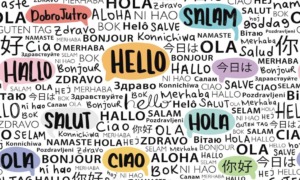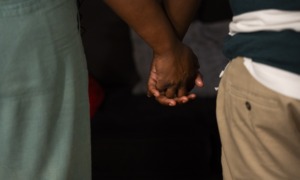 “The child should be fully prepared to live an individual life in society, and brought up in the spirit of the ideals proclaimed in the Charter of the United Nations, and in particular in the spirit of peace, dignity, tolerance, freedom, equality and solidarity …”
“The child should be fully prepared to live an individual life in society, and brought up in the spirit of the ideals proclaimed in the Charter of the United Nations, and in particular in the spirit of peace, dignity, tolerance, freedom, equality and solidarity …”
—Convention on the Rights of the Child, adopted and opened for signature, ratification and accession by U.N. General Assembly resolution 44/25 of Nov. 20, 1989, entry into force Sept. 2, 1990
Twenty-five years ago today, the United Nations entered into force the International Convention on the Rights of the Child, and as of May 2015, the United States stands alone in the international community in failing to ratify this treaty. This inaction flies in the face of our professed beliefs in human rights and international freedom.
Closer examination of the document yields few clues as to our hesitation. The first 40 articles offer a comprehensive description of rights that participating countries must grant to all people below the age of majority, as defined by each country’s own laws. Some of these include children’s right to a safe, healthy and properly supervised environment, and a prohibition against the separation of children from their parents against their will (except in cases of abuse and neglect).
In addition, the document guarantees children freedom of thought and religion, freedom from bullying and a juvenile justice system that respects the inherent differences between adults and children.
The Convention also states that children have the right to a minimum standard of living, appropriate health care and a basic education. Most critically, they are promised freedom from all forms of trafficking, sexual exploitation and sexual abuse.
[Related: The Strange Career of a Children’s Rights Treaty]
Some of the individuals who oppose ratification point out that the U.S. already complies with most of the agreement, making ratification redundant. However, we continue to hold onto a number of practices that violate the Convention, such as permitting exceptions to our child labor laws and moving juveniles into the adult criminal justice system. Ratification of the convention would discourage these departures from the treaty, but ratification would not circumvent our legislative process. Any changes to these practices would proceed through our existing legislative procedures, and state lawmakers would make final decisions on whether to change current regulations.
Other opponents are under the impression that the frequent references to acting “in the best interests of the child” are intended to water down parental rights. Careful reading shows this argument to be false. Article 5 states, “Parties shall respect the responsibilities, rights and duties of parents or, where applicable, the members of the extended family or community as provided for by local custom, legal guardians or other persons legally responsible for the child, to provide, in a manner consistent with the evolving capacities of the child, appropriate direction and guidance in the exercise by the child of the right recognized in the present Convention.”
The Convention consistently refers to parents as the primary decision makers for their children, and in fact, some parental rights are strengthened significantly. For example, the Convention asserts that children have a right to pursue a relationship with both parents, barring exceptional circumstances, regardless of divorce or geographic distance.
It is not as if the U.S. maintains a general policy of opting out of international treaties. The U.S. has signed and ratified five of the U.N.’s 18 International Human Rights Treaties, though this is fewer than Iran, Iraq and China — and on par with North Korea. Meanwhile, the U.S. does not hesitate to point a judgmental finger at others for the treatment of their citizens.
In March, for example, CIA Director John Brennan said, “Human rights abuses, whether they take place on the part of ISIL or of militias or individuals who are working as part of formal security services, need to be exposed, need to be stopped.” This, despite the fact that the CIA itself had recently been the subject of a lengthy human-rights investigation.”The U.S. government is not given to honest self-reflection about its own or its allies’ human rights abuses,” responded Katherine Hawkins, one of the investigators.
When we can stand up in the court of world opinion as a shining example of respect for and protection of human rights, particularly the rights of children, our national voice will hold greater weight when we decry the shortcomings of others. Please contact your congressional leaders to request their support in ratifying the Convention to protect the rights of children across the country and around the world.
Rachel Roderick, who has a master’s degree in human resources and labor relations, is an education advocate and literacy coach for students of all ages. She is currently conducting research on how the Convention on the Rights of the Child has impacted international juvenile justice practices.
More stories related to this one:
Both Pope Francis, U.N. Call on Us to Do Better by Our Children
Widespread Youth Unemployment Seen as Worldwide Risk
Young Women Organize Around Day of the Girl to Highlight Issues


























